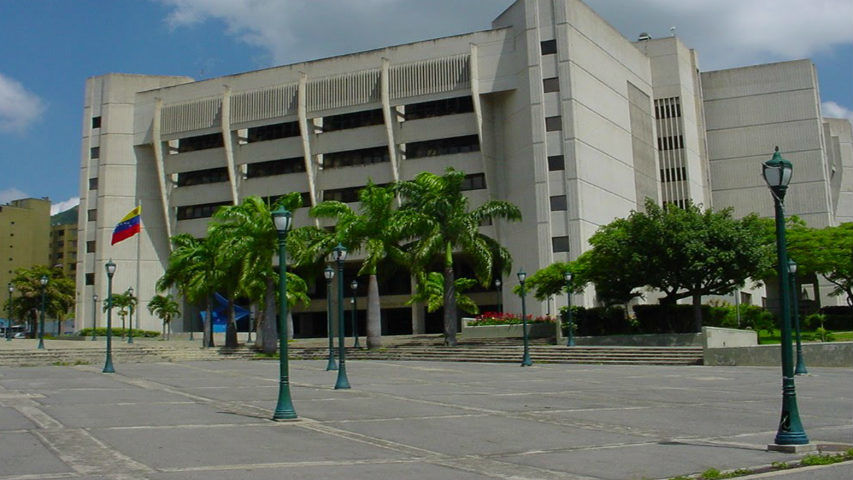A siege of protection against the National Assembly was raised by the Constitutional Chamber of the Supreme Tribunal of Justice (TSJ), which not only rejected the possibility of the parliament to review and to overrule the appointments of Justices made by other legislatures, but also took away from it the power to issue the law that regulates it.
The decision was taken by the interpreter of the Magna Carta in its judgment number 341 of 5 May 2016, in which it declared «unconstitutional» the amendment to the Organic Law of the TSJ of 2010, by considering that the deputies violated the numeral 4 of the article 204 of the fundamental text, which establishes that the highest tribunal has the initiative to present laws related to «the judicial organization and proceedings»
The amendment essentially contemplated increasing from 7 to 15 the number of Justices of the Constitutional Chamber.
“The law submitted to the constitutional assessment of this Chamber did not comply with the constitutional assumption of the legislative initiative that corresponds to this highest tribunal of the Republic, nor was it requested its intervention, which is indispensable for the discussion and approval procedure; Therefore, from a constitutional point of view it is totally void», said the Chamber in the joint judgment drawn up by Justices Gladys Gutiérrez, Juan Jose Mendoza, Carmen Zuleta, Luis Damiani, Lourdes Suárez, Calixto Ortega and Arcadio Delgado.
The article 187 of the Constitution states: «It is the responsibility of the National Assembly: To legislate in matters of national competence and on the functioning of the different branches of the National Power.»
Likewise, in the judgment the end of the amendment was also criticized: to increase the number of members of the Constitutional Chamber, considering that «it is clear that the objective of the National Assembly» is not to «optimize the functioning of the Chamber in the exercise of its multiple powers (…) but to bring new members to this judicial instance to obstruct the work of the highest instance of protection of the Constitution, for clearly political purposes. «
In the same way, it also questioned that the parliament had approved the text without the vote of its two thirds and stated that this qualified majority «is required» (…) «before the discussion of the respective draft bill, when it is related to a modification of an organic law, whatever its type or form were».
With this decision, the Chamber changed its view since 2004, when it allowed the National Assembly to approve the first TSJ Act with a simple majority, on the grounds that the constitutional article 203 established that the laws expressly mentioned in the Constitution as organic and those governing the public authorities can be approved by simple majority; and that only the qualified majority is needed for the instruments to which the Legislature wishes to give them that rank.
«This Constitutional Chamber agrees with the operative part of Judgment 34/2004 in that it was not necessary the favorable vote of the two thirds of the members of the National Assembly to start the discussion of the draft bill of 2004, but not based on that the qualified quorum is applied only for the modification of organic pre-constitutional laws (Organic Law of the Supreme Court of Justice) or those designated by the Constitution; but because the National Assembly with the 2004 Law never intended to amend the Organic Law of the Supreme Court of Justice but to create a new law for a new institution that, by decision of the 1999 Constituent, did not require a qualified vote», argued twelve years later and when the chavismo no longer had the majority in the parliament.
Extract of the Judgment
«In such a way that, in this matter, the legislator must be reasonable, that is to say, in accordance with the reason, moderate and rational, without exaggeration or abuse (…) to increase in an excessive manner the Justices of a particular Chamber, would infringe upon one of the Branches that integrates the juridical-political organization adopted by the Venezuelan people by approving the new Constitution. Indeed, the unjustified increase of Justices of the Constitutional Chamber violates the principles of autonomy and independence of the Judicial Branch”.
